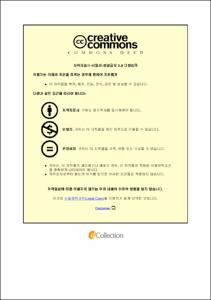평생교육 참여자의 긍정적사고와 대인관계능력이 삶의 만족도에 미치는 영향
- Alternative Title
- The Effects of Positive Thinking and Interpersonal Ability on Life Satisfaction of Participants in Lifelong Education.
- Abstract
- The 21st century is a society that seeks quality of life, and the interest in life satisfaction is increasing day by day for those who live in the 21st century. And the satisfaction of life is particularly noticeable in the field of lifelong education. The purpose of this study is to see how positive thinking and interpersonal skills of lifelong education participants affect life satisfaction.
The results of this research are as follows.
The study surveyed people who took part in lifelong learning at the Happiness Learning Center in Nam-gu, Busan. Data were analyzed using Pearson's correlation and multi-phase regression. The results of this research are as follows.
First, a correlation analysis was conducted to determine the relationship between positive thinking and interpersonal skills and the satisfaction of life of lifelong education participants, showing significant static relationships between these variables.
Second, after examining the relationship between the interpersonal skills of lifelong education participants and the satisfaction of life, it was found that there was a significant static correlation between them.
The study found that both positive thinking and interpersonal skills are necessary to enhance the satisfaction of lifelong education participants, and a way to improve them is necessary.
- Issued Date
- 2018
- Awarded Date
- 2018. 8
- Type
- Dissertation
- Publisher
- 부경대학교
- Alternative Author(s)
- seul ku
- Affiliation
- 부경대학교 교육대학원
- Department
- 교육대학원 평생교육·인적자원개발전공
- Advisor
- 강승희
- Table Of Contents
- Ⅰ. 서 론
1. 연구의 필요성 및 목적 1
2. 연구문제 4
3. 용어의 정의 4
가. 평생교육참여자 4
나. 긍적적 사고 4
다. 대인관계능력 5
라. 삶의 만족도 5
4. 연구의 제한점 6
Ⅱ. 이론적 배경 7
1. 평생교육 참여자 7
가. 평생교육 7
나. 평생교육 참여자의 개념 8
2. 긍정적 사고 10
가. 긍정심리학 10
나. 긍정적 사고와 유사 개념 11
다. 긍정적 사고 12
3. 대인관계능력 13
가. 대인관계능력 개념 13
나. 대인관계능력의 구성요소 15
4. 삶의 만족도 18
가. 삶의 만족도 개념 18
나. 삶의 만족도 관련 이론 21
5. 선행연구 22
가. 긍정적 사고와 삶의 만족도 22
나. 대인관계능력과 삶의 만족도 24
Ⅲ. 연구 방법 26
1. 연구대상 및 절차 26
2. 연구도구 28
가. 긍정적 사고 28
나. 대인관계능력 29
다. 삶의 만족도 30
3. 자료 처리 방법 31
Ⅳ. 연구 결과 33
1. 주요 변인 기술통계 분석 33
2. 주요변인 상관관계 분석 34
3. 삶의 만족도에 영향을 미치는 요인 37
Ⅴ. 논의 및 결론 39
1. 논 의 39
2. 결론 및 제언 40
참고문헌 42
부록 48
- Degree
- Master
- Appears in Collections:
- 교육대학원 > 평생교육인적자원개발전공
- Files in This Item:
-
-
Download
 평생교육 참여자의 긍정적사고와 대인관계능력이 삶의 만족도에 미치는 영향.pdf
기타 데이터 / 630.26 kB / Adobe PDF
평생교육 참여자의 긍정적사고와 대인관계능력이 삶의 만족도에 미치는 영향.pdf
기타 데이터 / 630.26 kB / Adobe PDF
-
Items in Repository are protected by copyright, with all rights reserved, unless otherwise indicated.